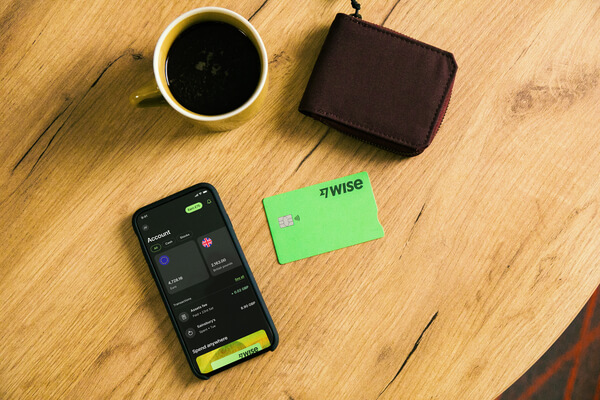How to open a bank account online in Australia: Eligibility, steps, and top providers
Wondering if you can open a bank account online in Australia? Discover the options available and how to open a bank account online.

If you dream of living in a warmer climate, but you’re not ready to retire just yet, you might want to consider a move to Singapore. At 739 square kilometres, Singapore isn’t exactly a big country. In fact, it would be more accurate to call it a small city.
Despite its size, Singapore is a global world city and one of the most popular destinations for expats. This isn’t surprising at all. The weather’s great, there are lots of career opportunities (especially in the financial sector) and [taxes are really low. As a plus, opening a bank account is fairly easy, at least if you’re a resident. Here’s what you need to know.
While some banks do allow online applications from expats, as a general rule you will need to visit a branch. Either way, you’re going to need at least two documents:
These are fairly straightforward requirements. You need to obtain your employment pass or study pass before you arrive - without them, you can’t legally work or study in Singapore. Some banks may also require additional documentation, including:
Documents acceptable as proof of address include: - a recent (less than 3 months old) utility bill;
In addition, if your address is shown on your passport, this is also acceptable as proof of address. It’s always best to get in touch with your bank beforehand, as they can give you a better idea of what documents you’ll need and what to expect during the application process.
At the very least, most Singaporean banks will require your passport and your employment or study pass in order to consider your application. You can only apply for an employment pass through your employer, which means you can’t get one unless you have a job. In the same way, you’ll need to submit a number of documents in order to obtain a student pass, including a study plan. Unfortunately, these requirements make it very difficult to open a bank account in Singapore if you’re just visiting and don’t plan to settle there. It will also make it difficult to open an account in your own name if you’re moving with your significant other and don’t plan to work or study.

Because Singapore is a global financial hub, many international banks operate there. Familiar names with operations in Singapore include ABN-AMRO, ANZ, BNP Paribas, Citibank, HSBC and Standard Chartered. If you have a bank account with one of these banks in your home country, they can help you set up a Singaporean bank account before your move. Keep in mind that many banks’ international services are aimed at high net worth individuals, so they may not be the right choice for you. It’s likely you’ll be required to make a large minimum deposit (even up to S$1 million), maintain a large in-credit balance (S$10K+) and pay various account opening fees and charges. Once you have the right documentation, opening an account is really straightforward (and can be done online), so it’s probably a good idea to wait until you’re in Singapore to open your account.
Singapore’s largest banks are: Development Bank of Singapore (DBS), Oversea Chinese Banking Corporation (OCBC) and United Overseas Bank (UOB). Let’s have a look at what each has to offer.
DBS is the largest bank in Singapore and the whole of Southeast Asia. It has more than four million customers in Singapore alone. If you’re new to Singapore, it’s a great bank to go with, as it has a tailored Expatriate Program you can apply for in branch or even online. The product includes a multi-currency account, which allows you to deposit Singaporean Dollars and up to 12 other currencies in the same account, and a visa credit card that’s fee-free for two years. You’ll also get a bunch of other benefits, including free air miles for using your credit card and exclusive invites to events. If you’re a student, the DBS Remix eSavings Plus account has daily interest and a visa debit card that gives you 0.3% cashback on purchases every three months. You can also apply for a business account. This includes free travel insurance, 0.3% cashback and even invitations to networking events.
OCBC have three basic accounts: Frank, Statement Savings and 360 Account. You can only apply for a Frank account if you’re between 16 to 29 years old. It requires no initial deposit or minimum daily in-credit balance, and can earn you up to 0.4% interest per annum - ideal if you’re a student. Both the Statement Savings and 360 Account will require an initial deposit of S$1,000 and a minimum daily in-credit balance. However, you can earn up to 3.25% in interest a year and get bonuses and cashback when you pay bills or even credit your salary by GIRO. You can also apply for a business account, whether you’re registered in Singapore or abroad. However, the products are only available for registered businesses, not sole traders.
UOB’s One Account offers up to 3.33% interest per year and cashback on debit card transactions. There’s also a Campus Account for students, which comes with a free visa credit card and up to 0.10% interest per annum on your balance. And if you’re a business owner, the business current account has a free corporate ATM card, planned overdraft facilities and up to 20% in rebates.
While most banks in Singapore offer bank accounts with no monthly fees, you can expect at least some additional costs. Each bank will have its own specific fee structure, so it’s a good idea to familiarise yourself with your bank’s terms and conditions. Broadly speaking, you can expect the following fees and charges:
Very often, you’ll need to meet a minimum deposit requirement, which is normally between S$1,000 and S$3,000. Most banks also have a minimum in-credit balance requirement, and you’ll be charged a fee if your balance falls below it.
Many banks require you to keep your account open for a minimum period of time, normally set at six months. Close your account before this period expires, and you’ll be slapped with an early closure fee in the region of S$30.
Withdrawing from your bank’s ATM machines is free; and some banks will also give you at least a set number of free withdrawals a month from other ATMs. However, as a general rule, it’s better to use your bank’s ATMs. That way, you’re sure you’re not being charged for making a withdrawal. Withdrawing from an ATM whilst overseas is rarely free. Chances are you’ll be slapped with an administration fee and a service charge, as well as an unfavourable exchange rate. That said, OCBC does offer free withdrawals from its ATMs in Hong Kong, Macau, Indonesia and Malaysia. Of course, while the withdrawal itself is free, you may still be charged an unfavourable exchange rate. You should always withdraw money in the local currency, so as to minimise this cost as much as possible.
One really unusual charge you’ll need to look out for is the fee some banks charge for depositing unsorted and unfolded bills. If you use a bank teller to deposit cash, you’ll need to make sure all the banknotes are unfolded, sorted by denomination and front side facing up, as otherwise you may be slapped with a S$50 fee for extra processing time.
Using your bank to make international transfers can get very expensive. You should expect to be charged a transaction fee and a handling fee, as well as agency fees for each transfer. Depending on the bank, this may be either a flat fee or a percentage commission. Either way, the cost will add up. It at all possible, you should avoid using your bank to make international money transfers.

Old-world bank accounts only work properly in one country. They hold money only in one currency. And it gets expensive when you try to use them across borders. Wise's new Borderless accounts solve all of this.
Now you can send, receive and organise your money internationally, without crazy fees or even-crazier exchange rates – just a small, fair charge when your money moves between currencies.
*Please see terms of use and product availability for your region or visit Wise fees and pricing for the most up to date pricing and fee information.
This publication is provided for general information purposes and does not constitute legal, tax or other professional advice from Wise Payments Limited or its subsidiaries and its affiliates, and it is not intended as a substitute for obtaining advice from a financial advisor or any other professional.
We make no representations, warranties or guarantees, whether expressed or implied, that the content in the publication is accurate, complete or up to date.

Wondering if you can open a bank account online in Australia? Discover the options available and how to open a bank account online.

Compare the best high-interest savings accounts in Australia. Our guide breaks down interest rates, and fees to help you find an account to grow your savings.

Looking for how to open a bank account with Virgin Money in Australia? We’ve got you covered. Here’s the process, fees and what you need to know.

Learn how to close your Revolut Australia account. The steps, options and important need-to-knows before your begin.

If you’re a student juggling study alongside work and social commitments, ensuring you have reliable and easy access to your money is essential. Choosing a...

Coming into student life something you might not think to address straight away is your banking. Many Australian banks offer accounts designed for students,...